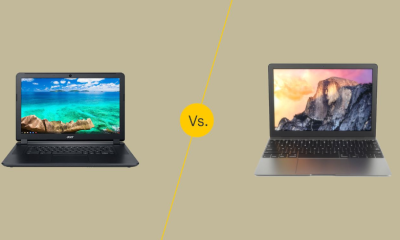Business
How to Reduce Costs Without Sacrificing Quality in Business Travel Management?
Business Travel Management

Balancing cost and quality in travel management is essential for optimizing financial resources, ensuring employee satisfaction, and maintaining a positive corporate reputation.
Effective business travel management minimizes unnecessary expenses while providing comfortable and convenient travel experiences, which enhance employee productivity and well-being. It also involves managing travel risks and complying with regulations, thereby safeguarding employees and the company.
By achieving this balance, companies can invest savings into other strategic areas, gain a competitive edge, and demonstrate their commitment to fiscal responsibility and employee care. This holistic approach contributes to long-term sustainability and operational efficiency.
This blog focuses on how to decrease travel costs without sacrificing quality in business travel management.
Implementing a Comprehensive Travel Policy
A clear, comprehensive travel policy is crucial for managing business travel effectively. It sets booking, expenses, and employee behavior guidelines, ensuring consistency and fairness.
Creating such a policy involves assessing company needs, setting budget limits, and defining permissible travel expenses. Regular updates are necessary to adapt to changing business environments and travel trends.
A well-defined policy controls costs by preventing overspending on travel and ensuring employees choose cost-effective business travel management options. It maintains quality by specifying preferred suppliers and service standards, thereby enhancing travel experiences.
Leveraging Technology and Travel Management Software
Travel software plays a pivotal role in optimizing travel expenses. These tools automate booking processes, track expenses in real time, and provide detailed analytics.
Key features include automated approvals, expense categorization, and integration with corporate travel policies, ensuring compliance and reducing errors. By consolidating travel data, these tools identify cost-saving opportunities and streamline administrative tasks.
Technology enhances travel experiences through user-friendly interfaces, mobile access, and personalized travel recommendations. For example, the software can alert travelers to cheaper flights or accommodations that meet company standards, balancing cost reduction with quality. Leveraging such technology ensures efficient travel management without compromising on service quality.
Negotiating with Suppliers
Negotiating better rates with airlines, hotels, and car rental companies is a strategic way to reduce travel costs. Effective negotiation in business travel management involves leveraging the volume of business a company can bring and committing to long-term partnerships.
Building strong relationships with suppliers can lead to more favorable terms, such as discounted rates, complimentary services, and flexible booking options. Successful tactics include understanding market rates, being prepared to switch suppliers if needed, and using data from travel management software to support negotiations.
Maintaining service quality during negotiations ensures that cost savings do not come at the expense of employee satisfaction or travel experience.
Encouraging Cost-Conscious Travel Behavior
Educating employees on cost-effective travel practices is vital for controlling expenses. Tips include booking in advance, choosing an economy class for flights, and using public transportation when feasible.
Providing incentives and rewards for employees who adhere to travel cost guidelines can motivate compliance. These might include business travel management programs, bonuses, or additional vacation days.
Employee behavior significantly impacts overall travel costs; well-informed and incentivized employees are more likely to make cost-effective decisions. Encouraging a cost-conscious culture ensures that travel budgets are respected and high travel quality is maintained through prudent spending.
Utilizing Loyalty Programs and Corporate Discounts
Enrolling in airline, hotel, and car rental loyalty programs offers substantial benefits, including access to special rates, upgrades, and complimentary services. Corporate discount programs further maximize savings by leveraging the company’s collective bargaining power.
TMCs can help businesses navigate these programs, ensuring they fully utilize available discounts. These programs reduce costs and enhance the travel experience by offering additional perks and services at no extra cost.
Optimizing Travel Itineraries
Optimizing travel schedules is key to reducing costs. Techniques include consolidating trips, choosing off-peak travel times, and booking in advance with travel management software.
Flexibility in travel dates and selecting direct flights that reduce layover costs and travel time can result in significant savings. Optimized itineraries ensure efficient travel planning, balancing cost savings with the quality of travel arrangements.
Monitoring and Analyzing Travel Expenses
Tracking and analyzing travel expenditures is essential for effective cost management. Tools like travel management software provide detailed reports on spending patterns, helping identify areas for cost reduction.
Effective monitoring of business travel management methods include setting spending limits, requiring pre-approval for travel expenses, and using expense tracking apps. Data analysis can reveal trends, such as frequent overspending on specific routes or services, and highlight opportunities for negotiation or policy adjustments.
Identifying cost-saving opportunities through data analysis ensures that quality is not compromised. It allows for informed decision-making and strategic adjustments to travel policies.
Implementing Virtual Meetings and Alternative Solutions
Virtual meetings are a cost-effective alternative to business travel, suitable for internal meetings or client interactions that do not require physical presence. The cost benefits are significant, eliminating travel, accommodation, and meal expenses.
Implementing virtual solutions, such as video conferencing and collaborative online tools, can drastically reduce travel costs. Successful examples include companies transitioning regular team meetings to virtual platforms, saving thousands annually.
While travel remains essential for certain engagements, virtual meetings provide a viable alternative that maintains communication and collaboration quality without the associated travel costs. Embracing these alternatives ensures fiscal prudence while upholding the operational efficiency of business travel management.
Reduce Costs With Travel Management Software
Balancing cost and quality in travel management is essential for maximizing efficiency, controlling expenses, and ensuring a positive travel experience for employees. Implementing a comprehensive travel policy provides a framework for cost control while maintaining service standards.
Leveraging business travel management technology streamlines processes and identifies cost-saving opportunities. By consolidating travel data, the software helps identify trends and areas for optimization, such as preferred suppliers or routes with lower fares. Automated approvals and expense categorization ensure compliance with travel policies, reducing errors and overspending
-

 Business5 months ago
Business5 months agoSepatuindonesia.com | Best Online Store in Indonesia
-

 Technology3 weeks ago
Technology3 weeks agoTop High Paying Affiliate Programs
-

 Tech5 months ago
Tech5 months agoAutomating Your Window Treatments: The Advantages of Auto Blinds
-

 Tech5 months ago
Tech5 months agoUnleash Your Potential: How Mecha Headsets Improve Productivity and Focus
-

 Instagram2 years ago
Instagram2 years agoFree Instagram Follower Without Login
-

 Reviews11 months ago
Reviews11 months agoAndroid Laptop vs. Chromebook: Which one is better?
-

 Instagram2 years ago
Instagram2 years agoIGTOK – Get Instagram Followers, Likes & Comments
-

 Business8 months ago
Business8 months agoFollow These 5 Tips To Avail Personal Loans At Lower Interest Rates




















